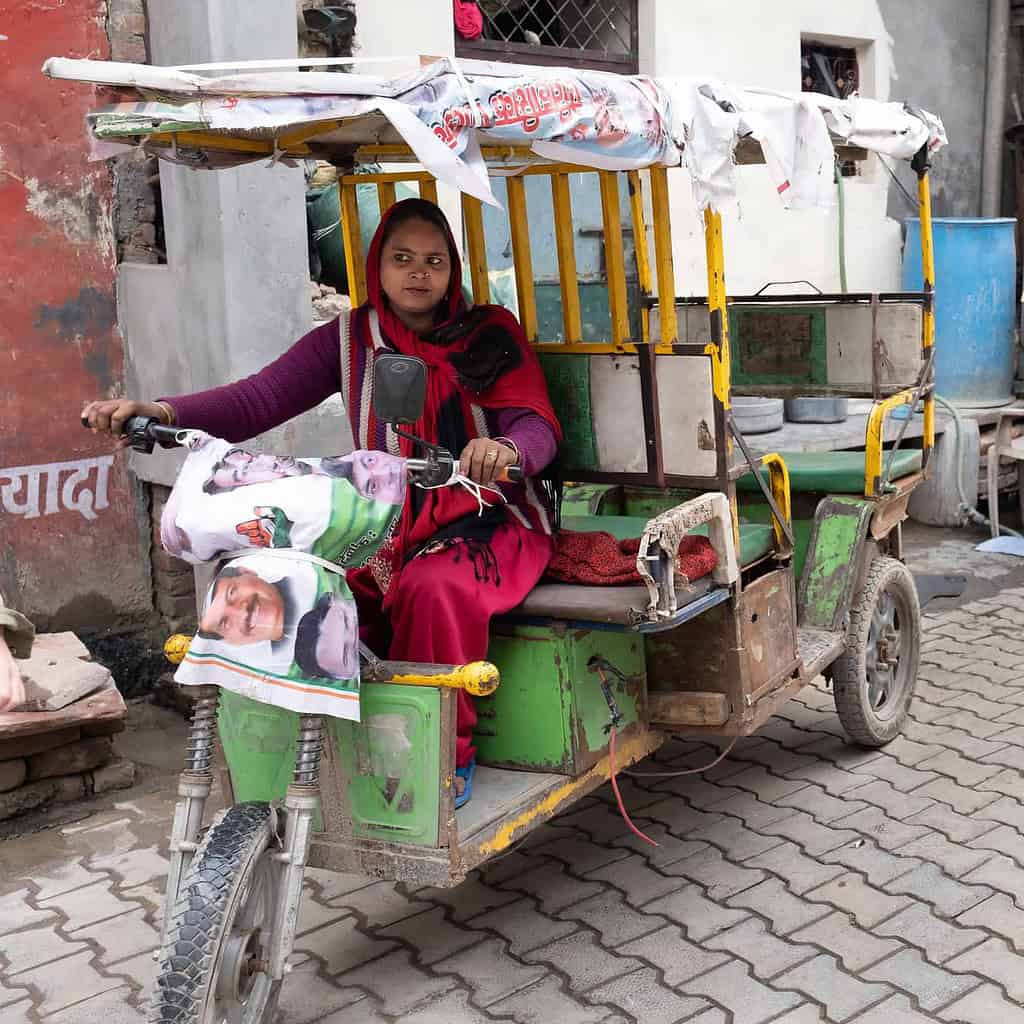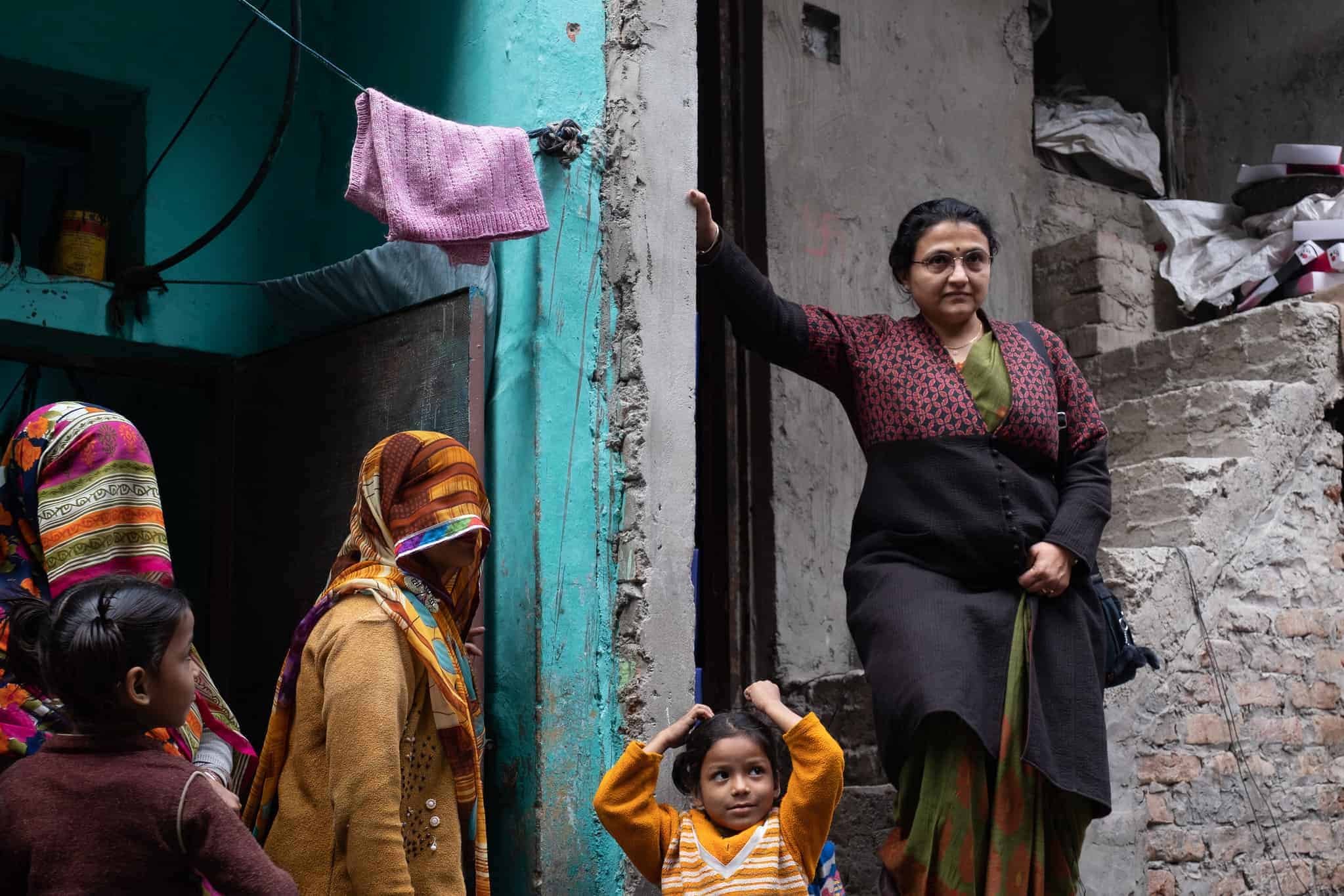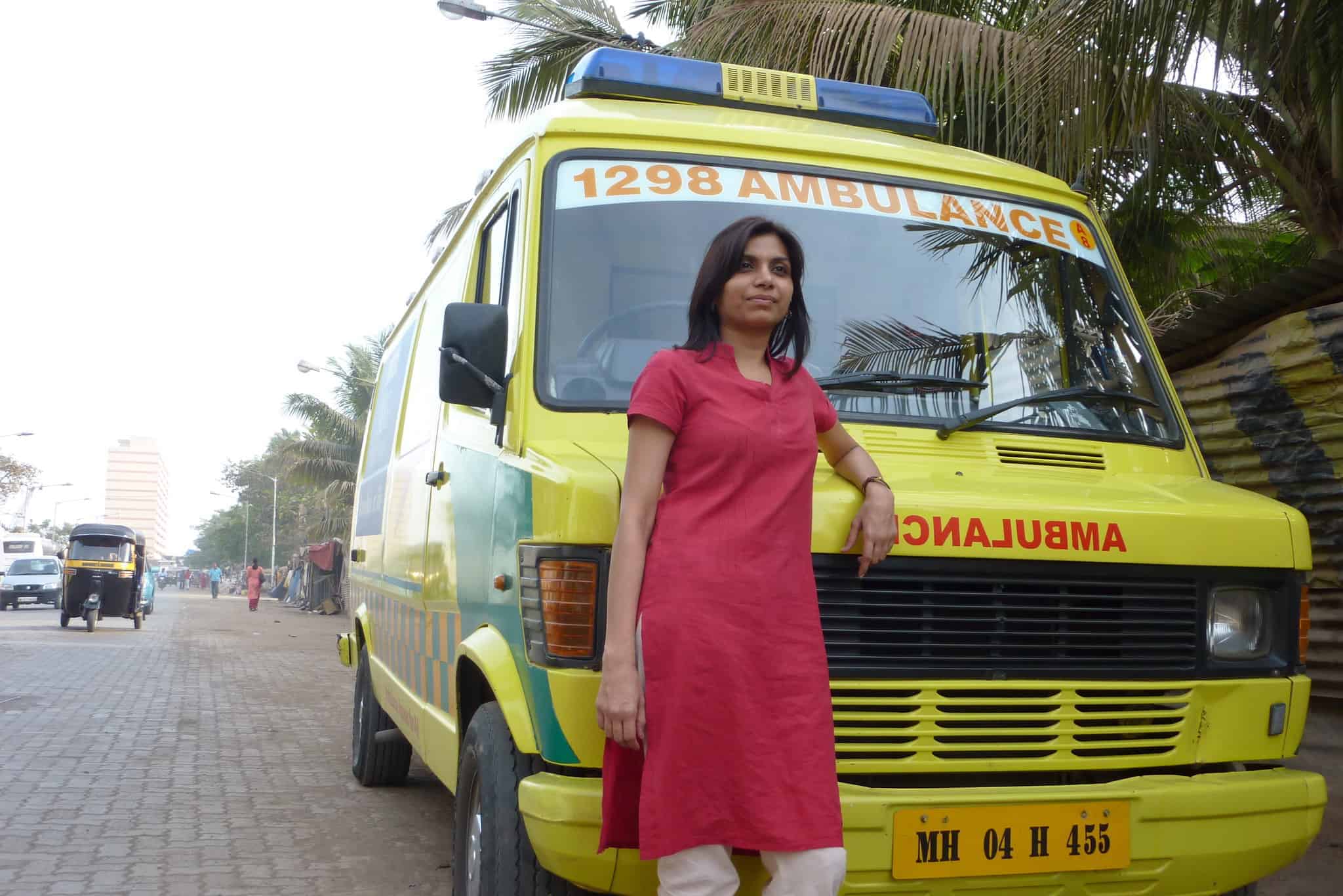The Women Solving Problems of Poverty in India

- Blog
- India
Bali Devi is a 56-year-old woman living with a family of six in Jaipur, northern India. She is a widowed mother of two sons who runs a small makeshift shop in the front portion of her house. Her daughter-in-law makes a small earning by stitching sari borders for women in her locality. Both are part of the 90% of women who are not in the formal sector in India – underpaid and underprotected in what is paradoxically one of the fastest-growing economies in the world.
Their economic and social status would be further diminished, as part of the more than 85% of women who do not, and in many cases, cannot own land due to stringent bank loan laws that essentially ignore informal workers, were it not for one woman and the company she helped build.
Shruti Gonsalves is a native of New Delhi who lost her own husband early on in life and faced many hurdles claiming the property that they had built together. In 2013, she started Sitara, a housing finance company created within the nonprofit organization Self Employed Women’s Alliance (SEWA) to provide affordable housing loan options to informal women workers just like herself and Devi. So far, Sitara has financed the construction and extension of more than 15,000 homes, impacting the lives of tens of thousands of low-income families who can now operate home-based businesses such as stitching or other activities that rely on quality housing.

“I have been personally involved in establishing this company because of the kind of experience I had post the demise of my husband. And the challenges I had faced in ensuring that the property we had purchased together remains with me and my children.” – Shruti Gonsalves
Despite lifting 415 million people out of multidimensional poverty over the last fifteen years, India still has – by far – the largest number of people living in poverty worldwide at 228.9 million. In 2023, the country overtook China to become the world’s most populous, with nearly 1.5 billion inhabitants, but this demographic surge could become a curse if inequality continues to rise, particularly between genders in all their intersecting identities. At 24%, the labor force participation of women in India is among the lowest in the world.
Gonsalves is just one of a number of women using the power of markets to tackle problems of poverty sustainably in India. Two others, Sweta Mangal of Ziqitza, and Neha Juneja of Greenway Grameen, are also running businesses that tackle issues disproportionately affecting women: emergency medical care and inefficient and dangerous cooking, respectively.
When Sweta Mangal co-founded Ziqitza in the mid-2000s, one in every 400 live births resulted in the death of the mother, driven largely by poor-quality or at-home deliveries. Ziqitza now partners with the Indian government and is one of the leading emergency health service companies in the world. They have provided 48 million ambulance rides since inception, serving 13 million pregnant women and delivering 50,000 babies on board.

“One thing we were very clear about is that we didn’t want to build a company which was only in Northern Bombay. The vision was India. The vision was developing countries. It was never small. It was very big.” – Sweta Mangal
Neha Juneja and the company she co-founded have achieved similarly catalytic results. In 13 years, Greenway has become India’s largest clean cookstoves manufacturer, selling almost two million wood cookstoves throughout southern India. The stoves save users money and time, mitigate almost 10 million tons of carbon dioxide emissions, and contribute to preventing millions of premature deaths caused by indoor air pollution in India.
As these three examples bear out; women-led enterprises are solving some of the most intractable problems of poverty for women. What’s more, above and beyond their incredible, life-changing impact, these three companies have provided profitable returns – an average of 3x after 10 years from Acumen’s initial investment. (Read more about these successful exits in Acumen’s latest report).
“It’s a really big problem. Someone should have done this 30 years ago. There’s no discovery, there’s no great adventure, it’s just execution.” – Neha Juneja
Acumen’s experience is not an anomaly. It is indicative of a broader trend.
In India, women-led startups outperformed those led by men in 2022, raising $4.3 billion. Despite this, just 18% of startups are led by women. Globally, that number is much worse with a mere 2.2% of total venture capital funding going to women-led start-ups. Not only does the data suggest that impact investors would see better returns if they funded women entrepreneurs; the example of these three successful entrepreneurs suggests they could concurrently alter the trajectory of inequality. As Shruti, Sweta, and Neha have demonstrated; proximity, vision, and execution are some of the keys to solving problems of poverty. It’s up to the rest of us to dismantle the social structures that exacerbate gender injustice across the pyramid of wealth, and invest more resources in the women solving problems of poverty for women.